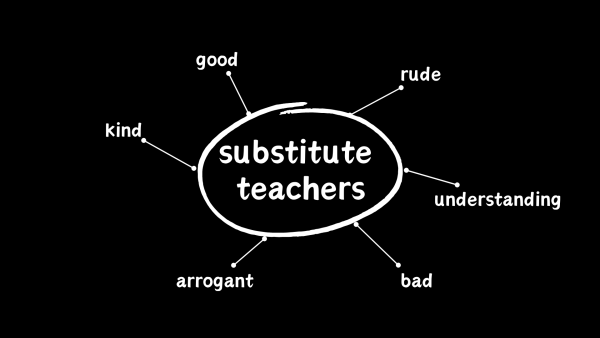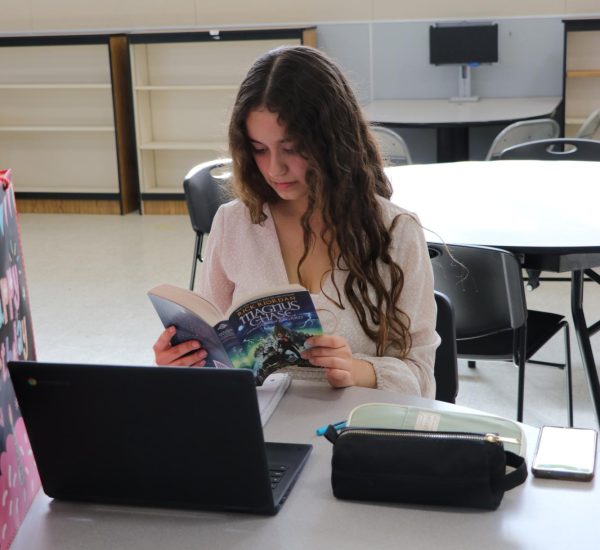Methods to Relieve Stress and Anxiety – For Teens
Methods to relieve stress and anxiety – For Teens
Stress and anxiety are extremely common in everyone. They’re something everyone experiences. And sometimes we need help finding ways to relieve them.
What is Stress?
“Stress is the body’s response to a challenge or demand. Everyone experiences stress, which can be triggered by a range of events, from small daily hassles to major changes… The stress response includes physical components such as elevated heart rate and blood pressure, thoughts, and personal beliefs about the stressful event, and emotions, including fear and anger” (Cleveland 1).
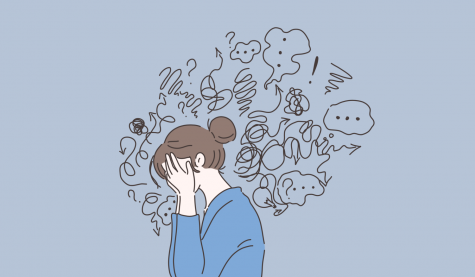
What is Anxiety?
Anxiety is the reaction to situations perceived as stressful or dangerous. Anxiety is from a category of mental health diagnoses that lead to excessive nervousness, fear, apprehension, and worry.
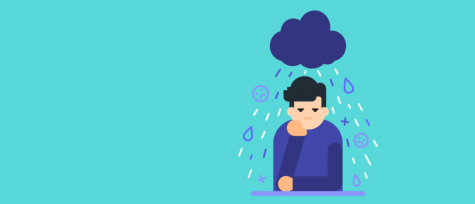
Some Causes of Stress and Anxiety
In an article by Brightmont Academy Blog, Ruth Wilson explains how school is one of the main stressors for children and teenagers alike. She states, “school includes multiple factors beyond the academics that cause stress, sometimes even debilitating stress for individual students.” (Wilson 1). She explains how social interaction is one such factor. As there are students who are naturally outgoing, there are also students who are socially awkward and find it stressful to interact with their peers. She also explains how peer or social pressure is another reason why some students don’t interact with others.
Another leading cause of anxiety is class participation. “Even when points are awarded for class participation, there are some students who purposely choose to forfeit those points rather than speak aloud or ask a question in front of other students,” Wilson explains (6).
Despite the negative connotations associated with the words “stress” and “anxiety,” they are normal emotions and even have a number of benefits! There is both positive and negative stress, and despite how useless anxiety may seem at times, there is a purpose for anxiety (Science Daily). Anxiety serves as a built-in warning system and has provided the human race with an evolutionary advantage in learning to avoid harm. The Mayo Clinic says that “anxiety can be normal in stressful situations such as public speaking or taking a test. Anxiety is only an indicator of underlying disease when feelings become excessive, all-consuming, and interfere with daily living” (Mayo 2). “There are two types of stress, the good stress and the bad stress,” substitute Advisor for TCS , Ms. Mentar said, “Good stress is the stress that motivates and helps us to perform tasks and on tests. The bad stress is the one that can overcome us and make us feel sad, depressed, etc.”
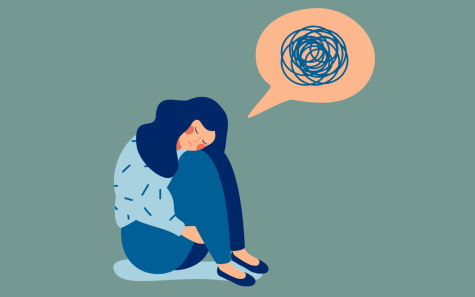
“Stress and Anxiety can be messy and sometimes our physical life reflects our mental health,” said Junior at MECA, Payton Zarceno. “I think a lot of teenagers are dealing with one or both of these issues, so finding a way to relieve them is really important.”
Payton is also a member of TCS or Timberwolves Changing Stigma, a club at MECA that raises awareness of mental health while promoting kindness and inclusivity through campus events and activities. They try to be an advocate for those who may not have a voice and to help end the stigma of mental illnesses.
How Can We Relieve Stress and Anxiety?
Though stress and anxiety are inevitable in life, too much of either can have harmful effects on our mental, physical, and emotional health. Particularly now that the pandemic has changed our personal and academic lives so drastically, many of us may now find ourselves with new stressors in our lives, whether it be at home or at “school.” In order to succeed despite the adversities in our lives, we must find new ways to take on challenges and deal with our stressors. Here are some tips that can help you alleviate your stress and anxiety, as well as help you develop healthy habits in the long run:
1. Listen to Music
If you’re in a stressful situation and you feel overwhelmed, try taking a break and listening to music. Whether you need to catch your breath while listening to classical music or relieve pent up stress by belting out to the latest hits, music can help calm the soul. “Playing calm music has a positive effect on the brain and body, can lower blood pressure, and reduce cortisol, a hormone linked to stress” (Healthline 3).
2. Talk to Someone
Sometimes, we may benefit from simply discussing our problems and venting our frustrations. Try talking to a friend or family member. Ranting and letting off steam helps when you’re feeling stressed. Having good relationships with your “friends and loved ones [is] important to any lifestyle… A reassuring voice, even for a minute, can put everything in perspective” (Healthline 5-6).
3. Exercise
Have you ever heard of “runner’s high?” Exercise releases endorphins! It has been proven time and again that engaging in exercise can cause feelings of happiness and help to reduce anxiety. “In addition to having physical health benefits, exercise has been shown to be a powerful stress reliever. Consider non-competitive aerobic exercise, strengthening with weights, or movement activities like yoga or Tai Chi, and set reasonable goals for yourself. Aerobic exercise has been shown to release endorphins—natural substances that help you feel better and maintain a positive attitude” (Cleveland 4).
4. Get Some Sleep
Sleep is essential to keep yourself healthy both physically and mentally. Lack of sleep has been known to cause stress, as well as to contribute to other health issues such as weight gain and diabetes (Harvard). As teenagers, we need an average of 7-9 hours of sleep every night to feel our best. In order to achieve this, some tips to help you sleep better include getting off electronics earlier, dimming your lights, avoiding caffeinated drinks—such as coffee—later in the day, trying to sleep and wake up at consistent times, and creating a restful environment.
5. Reduce Triggers and Set Priorities
We each have our own triggers that may lead to anxiety and stress—for example, upcoming assignments and exams all due within the same time frame. And “if you are like most people, your life may be filled with too many demands and too little time” (Cleveland 7). When thinking of everything that we must do, we may start to feel overwhelmed and stressed. So when trying to reduce triggers, “you can free up time by practicing time-management skills like asking for help when it’s appropriate, setting priorities, pacing yourself, and reserving time to take care of yourself” (Cleveland 7).
6. Assert Yourself
When you don’t assert yourself or don’t say no to certain things you would rather not do, you’re creating sources of anxiety and stress for yourself. “It’s okay to say “No” to demands on your time and energy that will place too much stress on you. You don’t always have to meet the expectations of others” (Cleveland 9).
7. Set Realistic Goals and Expectations
As stated by Alexander Pope, “to err is human.” We aren’t perfect, and we will inevitably make mistakes. “It’s okay—and healthy—to realize you cannot be 100% successful at everything all at once. Be mindful of the things you can control and work on accepting the things that you can’t control” (Cleveland 10).
8. Sell yourself to yourself!
We tend to focus only on our downfalls and the things that we could have done better, and often overlook our strengths and successes. “When you’re feeling overwhelmed, remind yourself of what you do well. Have a healthy sense of self-esteem” (Cleveland 11).
“I do incorporate some of the strategies to combat stress and anxiety. Personally, these strategies have always helped me even when I was a college student,” said Ms. Mentar.
_____________________
Interested in joining TCS? Go here.
Google classroom code : climdhz
Remind code: @mecatcs
Need some help with stress and anxiety, email Ms. Mentar and Ms. Contreras at
[email protected]
[email protected]
Numbers to helplines:
Crisis Text Line: Text sms:741741
SAMHSA’s National Helpline: 1-800-662-HELP (4357)
Cites:
https://www.brightmontacademy.com/blog/9-things-that-cause-stress-at-school
https://www.healthline.com/health/10-ways-to-relieve-stress#listen-to-music
https://my.clevelandclinic.org/health/articles/8133-stress-10-ways-to-ease-stress
http://healthysleep.med.harvard.edu/healthy/matters/consequences/sleep-and-disease-risk
Your donation will support the student journalists of Mt. SAC Early College Academy. Your contribution will allow us to purchase equipment and cover our annual website hosting costs.

Gabriela Jacobo is in 9th grade. This is her first on staff. She enjoys math, art, and literature. In the future, she wants to become an architect. Outside...






